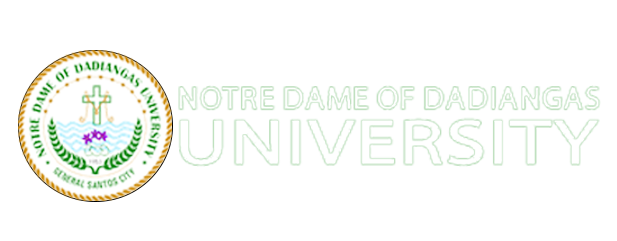In our increasingly progressive world, it’s disheartening to see how many Filipinos remain prejudiced against their own people. Bisaya, in particular, is not just disregarded but outright ridiculed, most especially with their language and accent. This raises a troubling question: “Is the Bisaya language always going to be the target of mockery? Are we perpetuating a cycle of cultural inferiority?”
Putting an end to the mockery against Bisaya people is not just necessary—it’s urgent. This prejudice doesn’t just threaten the preservation of the Philippines’ rich linguistic and cultural legacy; it perpetuates the harmful notion that speaking Bisaya is inferior, marginalizing its speakers.
𝘛𝘩𝘦 𝘐𝘯𝘧𝘭𝘶𝘦𝘯𝘤𝘦 𝘰𝘧 𝘔𝘦𝘥𝘪𝘢
On a daily basis as well as the media, there is a pervasive bias against Bisaya culture and language. Stereotypes of rural simplicity are perpetuated and the depth of Bisaya culture is undermined by the frequent use of exaggerated accents or humorous effects when portraying Bisaya language in media. This is comparable to the well-known Facebook meme featuring Jenny from the American reality series “90 Day Fiancé: Before the 90 Days.” Her English pronunciation was influenced by her Bisaya accent, and the remarks “You’re rude,” which came out as “You’re road,” was made fun of by Filipino users on social media. Making fun of Bisayan people’s pronunciation and accents has led to inside jokes, memes, and inaccurate media representations.
The idea that speaking Bisaya is less prestigious than speaking in other languages is furthered by the frequent marginalization of Bisaya culture and perspectives. Language inferiority is fostered in social contexts where Bisaya speakers are subjected to discrimination. This is similar to the derogatory comments that went viral and were directed at Ken Suson of a P-pop boy band. His hosting abilities and Bisaya heritage were mocked in an ad hominem attack. In addition, it called Bisaya people as “taong-bundok” and implied that they were “ignorant.” These incidents stem from ignorance and a lack of respect for Bisayan people. These biases highlight the urgent need to promote inclusivity and embrace the diverse linguistic heritage of the Philippines.
𝘚𝘰𝘤𝘪𝘦𝘵𝘢𝘭 𝘢𝘯𝘥 𝘊𝘶𝘭𝘵𝘶𝘳𝘢𝘭 𝘊𝘰𝘯𝘴𝘦𝘲𝘶𝘦𝘯𝘤𝘦𝘴
It’s possible that many people still do this kind of action and some tolerate it because of the belief that Filipinos are naturally witty and that this kind of behavior is merely harmless jokes. Bisaya speakers, however, frequently experience emotions of uncertainty and shame over their cultural background as a result of these interactions. In an effort to prevent unfavorable outcomes, some people eventually feel under pressure to speak no Bisaya at all in specific contexts. In addition to undermining attempts to protect and honor the Bisaya manner of language and culture, this internalization of societal bias also reduces one’s self-confidence.
Furthermore, there are serious societal consequences when prejudices and misconceptions about Bisaya people continue to exist. Bisaya speakers could experience pressure to hide or minimize their cultural and linguistic identities in order to fit in with the norms of the larger society. This restriction weakens the rich linguistic diversity that characterizes Philippine society. Moreover, the transmission of language and cultural information to future generations is threatened by the unwillingness to speak Bisaya and the pressure to change their accent out of fear of prejudice. Since younger generations are choosing languages that are more socially acceptable, there is a concern that cultural illiteracy will increase. Thus, promoting inclusivity, protecting cultural legacy, and encouraging respect for all Philippine languages and cultures depend on eliminating prejudices against Bisaya culture.
𝘊𝘢𝘭𝘭 𝘵𝘰 𝘈𝘤𝘵𝘪𝘰𝘯
Addressing bias against Bisaya culture and language is crucial due to the harmful effects of belittling behaviors that perpetuate stereotypes of inferiority and simplicity among Bisaya people. Many non-Bisaya-speaking individuals feel a certain misguided sense of satisfaction from their harmful behavior of belittling Bisaya because they are so adamant about viewing them as less sophisticated and educated. This attitude fosters entertainment and a sense of superiority through ridicule, which is both selfish and unreasonable and, thus, should be put to an end. Society can only arrive at a more equitable, inclusive, and diverse country when the recognition and respect of all Philippine native languages are given equal value. With respect being the very foundation for combating the ever-alarming issue of mockery against Bisaya people, subsequent efforts to feature positive representation, implement anti-discrimination policies, and promote cultural sensitivity could follow. Exercising respect and embracing the diversity of cultural backgrounds within our society is essential for cultivating a more harmonious environment and for maintaining the cultural soul of the Filipino nation where every Filipino feels valued and empowered.
𝘋𝘦𝘧𝘺𝘪𝘯𝘨 𝘚𝘵𝘦𝘳𝘦𝘰𝘵𝘺𝘱𝘦𝘴
Overall, it is important to eliminate stereotypes and promote inclusivity. Widespread prejudice and contempt directed at Bisaya speakers damages their cultural pride and self-esteem. Collective efforts can ensure that all Filipino identities, especially Bisaya, are cherished and respected by promoting respectful expression in the media and effective policies that fight discrimination and nurture cultural sensitivity. Finally, to answer the question, “Is the Bisaya language always going to be the target of mockery? Are we perpetuating a cycle of cultural inferiority?” We must now embrace diversity rather than make fun of it in order to ensure that all Philippine languages flourish in a culture that celebrates equality and inclusivity. Therefore, we can only end this cycle of cultural inferiority and contempt by challenging the norms and encouraging respect for the Bisaya culture.

